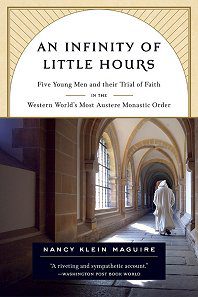This summer I took a unit of CPE (“Clinical Pastoral Education”), which is a continuing education program that helps reflect on becoming more compassionately present to others. My experience reaffirmed for me the old saying that, “Intention does not equal impact.” In other words, even with the best of intentions, the impact of our words and deeds may unintentionally wound another. Along those lines, the following are a few highlights from my CPE training offered in the hope that others may also find them helpful in being compassionately present for friends and family members, as well as in advocating for yourself in what is and isn’t helpful when you are grieving or in pain.
The first and most important touchstone is that “Each individual is the expert of their own pain, suffering, and experience.” No one else can ever know the full extent of what another person is existentially experiencing because we have not walked in their shoes through the fullness of their life.
To say more, it may be helpful to reference one of those books in our society that is frequently referenced, seldom
understood, and even more rarely read — and that is the psychiatrist Elisabeth Kübler-Ross’ 1969 book On Death and Dying. This book is a classic example of intent not equaling impact, and some grief specialists today argue that it has unfortunately and unintentionally “done more harm than good” due principally to popular misunderstandings of Kübler-Ross’ five stages of dying — in particular, the insistence that is sometimes made that a griever must go through all five stages and in precise order: “Denial, Anger, Bargaining, Depression, and Acceptance.”
First of all most people only know the five stages, and haven’t read enough of the actual book to get to the full title, which is: On Death and Dying: What the Dying Have to Teach Doctors, Nurses, Clergy, and Their Own Families. In other words, the most important point of the book (which was quite radical in 1969 when the modern Hospice movement was still in its early stages) was that medical care should be reoriented toward compassionate treatment of terminally ill individual — not only what the tests and treatments that need to be done to the dying. And as Kübler-Ross herself later emphasized in her 2005 book On Grief and Grieving:
The stages have evolved since their introduction, and they have been very misunderstood over the past three decades. They were never meant to help tuck messy emotions into neat packages. They are responses to loss that many people have, but there is not a typical response to loss, as there is no typically loss. Our grief is as individual as our lives. Not everyone goes through all of them or goes in a prescribed order. (7)
An important corollary to this dictum that “Each individual is the expert of their own pain, suffering, and experience” is to give yourself permission to be comfortable “not knowing” what the right thing is to say or do, and simply be compassionately present to the other person. (Buddhists calls this “Beginning’s Mind.”) Many times it is enough to be willing to patiently listen, to say aloud how much you care, and to be willing sometimes even just to sit silently with someone who at the moment would rather not be alone.
In my spiritual direction training, we used to say that one of the goals was to “listen another person into speech” — that is, by listening attentively, compassionately and without judgement we can create a space in which a person may find themselves articulating truths about their experience and grieving process that they may not otherwise have done. By listening compassionately, we can be a catalyst in helping another person move toward healing and wholeness. I sometimes try to keep the advice of the Buddhist teacher Tara Brach in mind here: that we should listen from a place of “radical acceptance” — and that in so doing, we will unconsciously give others permission to share from a place of inner freedom.
Relatedly, one the most common impulses in our society when we are faced with someone else’s pain or tragedy is to say, “I’m so sorry that happened to you.” But that can unintentionally communicate sympathy when we intend empathy. I know I have said “I’m so sorry” reflexively sometimes, and probably will again in the future. But instead of generically saying you are sorry, it is often be more helpful to name the emotional “elephant in the room”: say how shocked you are, how sad, or how angry. Naming the emotion can have give the other permission perhaps to articulate how they are feeling.
I would also like to share the single most helpful section of reading that I did for CPE this summer, which was by Jack Bloom, a practicing psychologist who also spent 10 years as a congregational rabbi. This particular essay began with a list of some of the most unhelpful responses that are said far too frequently. These potentially harmful responses include: “Don’t feel bad,” “I know how you feel,” “Replace it,” “Grieve Alone,” “Time Heals,” “You must be strong,” “Keep busy”, and “It was God’s will.” Many of these responses seek to skip past messy emotions, which is a recipe for later problems from what psychologists call repression.
In place of these potentially harmful responses, the author of this article recommends the following. First, begin by asking “What happened?” Then listen compassionately and without judgment or interruption. Second, as said earlier, name the emotional elephant in the room:
You must feel so…crushed / devastated / overwhelmed / heartsick / heartbroken / exhausted / painful / confused / drowning / trapped / scared / sad / lost / abandoned / numb / surprised / relieved.…
Finally, “The very best thing you can say to grievers is, ‘Tell me a story about your loved one.’ The very best thing you can do for grievers is to give them a hug!”
Now, I have no doubt that these are those of you reading this post for whom some or all of the above is not true or helpful. But remember the first rule from earlier. Bloom may have a Ph.D. in psychology and a decade of experience as a congregational rabbi, but you are “expert on your own pain, suffering, and experience.” And to speak briefly on behalf of pastoral caregivers, we do the best we can, but we are only human. If you can, and to the extent you are able, let us know not just when we get it wrong in offering pastoral care, but more importantly, how we might be more compassionately present to you and others like you in the future.
For now, I will end with these words:
Be gentle with yourself —
with all that you are, all that has happened to you, and all that feel.
Be gentle and take good care —
care of yourself, care of those you love, and care with all those you meet.
In the precious time we have have in this life and on this one Earth,
may we freely choose loving-kindness, patient listening, and fierce compassion.
The Rev. Dr. Carl Gregg is a trained spiritual director, a D.Min. graduate of San Francisco Theological Seminary, and the minister of the Unitarian Universalist Congregation of Frederick, Maryland. Follow him on Facebook (facebook.com/carlgregg) and Twitter (@carlgregg).
Learn more about Unitarian Universalism:
http://www.uua.org/beliefs/principles













